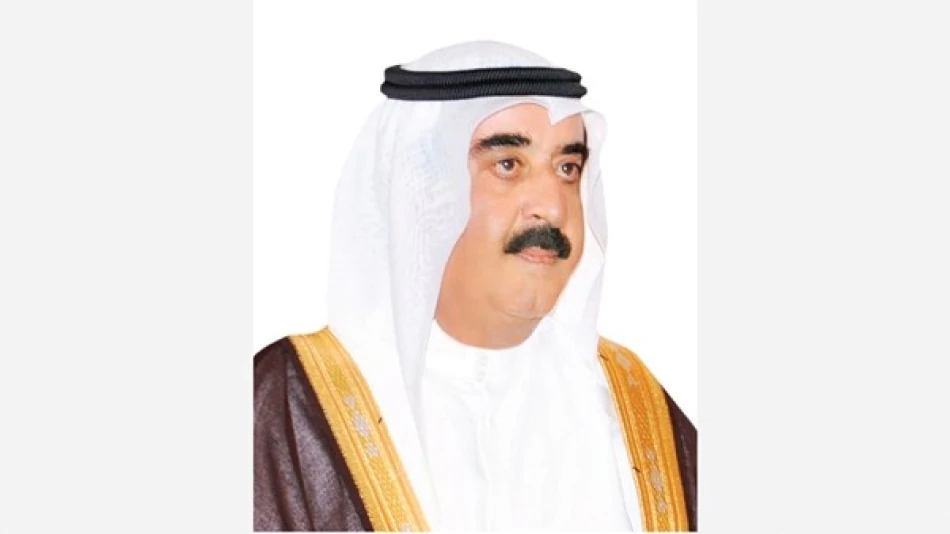
Sharjah's Powerful Branding: Connecting Umm Al Quwain to the Global Stage
Umm Al Quwain Unveils New Tourism Identity as UAE Diversifies Beyond Oil
The UAE's smallest emirate is making a bold play for global recognition as Umm Al Quwain launches its first comprehensive tourism brand identity. The move signals a strategic pivot toward cultural and heritage tourism, positioning the emirate as a unique alternative to Dubai and Abu Dhabi's luxury-focused offerings while contributing to the nation's ambitious economic diversification goals.
Strategic Tourism Push Reflects National Economic Priorities
Sheikh Saud bin Rashid Al Mualla, Ruler of Umm Al Quwain and member of the UAE Supreme Council, emphasized that tourism serves as a "pivotal pillar" in the UAE's national economy during the brand identity launch. His comments underscore the federal government's broader Vision 2071 strategy, which aims to make the UAE the world's best country by 2071 through economic diversification and sustainable development.
The timing is particularly significant as the UAE accelerates efforts to reduce oil dependency. Tourism already contributes approximately 12% to the country's GDP, with the government targeting further growth through differentiated emirate-specific offerings.
Heritage-Based Branding Sets Umm Al Quwain Apart
"We draw our vision for building the promotional identity from our ancient history and deep-rooted culture," Sheikh Saud stated, highlighting how the emirate plans to leverage its authentic cultural assets rather than compete directly with neighboring emirates' modern attractions.
This approach mirrors successful heritage tourism strategies in countries like Jordan and Morocco, where authentic cultural experiences command premium pricing and attract longer-staying visitors. For Umm Al Quwain, which lacks the iconic skylines of Dubai or the cultural institutions of Abu Dhabi, positioning around authenticity and tradition offers a viable competitive advantage.
Natural and Historical Assets Drive Differentiation
The promotional identity emphasizes Umm Al Quwain's natural landscapes, archaeological sites, and traditional practices. The emirate houses significant mangrove ecosystems, ancient fortifications, and maintains traditional fishing and pearl diving heritage that other emirates have largely commercialized or abandoned.
Market Implications for UAE Tourism Sector
The launch represents more than local branding—it signals the UAE's evolution toward a multi-destination tourism model. Rather than concentrating visitor flows in Dubai and Abu Dhabi, the strategy distributes tourism benefits across all seven emirates, potentially extending average visitor stays and increasing per-capita spending.
This mirrors Singapore's successful neighborhood-based tourism strategy and Thailand's promotion of secondary cities beyond Bangkok. For international tour operators and hospitality investors, Umm Al Quwain's brand development creates new partnership opportunities, particularly in eco-tourism and cultural experience segments.
Sustainable Tourism Focus Aligns with Global Trends
Sheikh Saud's emphasis on environmental preservation alongside tourism development reflects growing international demand for sustainable travel options. Post-pandemic travelers increasingly seek authentic, low-impact experiences over mass tourism destinations, creating market opportunities for emirates like Umm Al Quwain that can offer genuine cultural immersion.
Regional Positioning and International Ambitions
The ruler's statement that the brand identity will "enhance the emirate's presence among the UAE's emirates and support its regional and international position" reveals ambitions beyond domestic tourism redistribution. Umm Al Quwain appears to be positioning itself as a distinct destination that could attract direct international visitors, potentially bypassing Dubai as an entry point.
This strategy could prove particularly effective in attracting cultural tourists from Europe and Asia who prioritize authentic experiences over luxury amenities. The approach also supports the UAE's broader soft power objectives, showcasing the country's cultural depth and historical significance beyond its reputation for modern architectural marvels and commercial success.
Most Viewed News

 Layla Al Mansoori
Layla Al Mansoori






